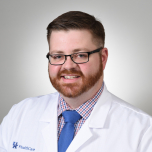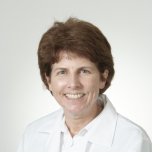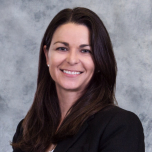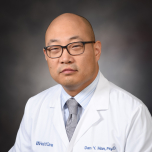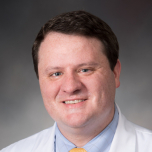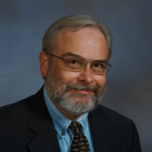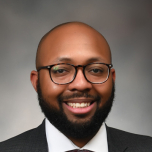Clinical Neuropsychology Fellowship
Welcome, Applicants!
The University of Kentucky College of Medicine clinical neuropsychology fellowship program has one fellow position open for the 2026-2028 training cycle. Application deadline is Monday, Dec 15, 2025. Start dates are flexible if need be and generally range between July and August.
Applicants will be notified of their consideration and scheduled for virtual interviews in December. UK's neuropsychology program is not currently participating in the APPCN match.
Application Information
Interested applicants should forward a letter of interest, CV, two work samples (including at least one de-identified report and one additional report or original publication), a copy of graduate transcripts, and three letters of recommendation to: Timothy.Ainger@uky.edu with “Neuropsychology Fellowship Application Materials” as the email subject. Recommendation letters may be forwarded separately by the writers if they prefer.
Follow our Instagram UK Neuropsychology for more about life in the program and Lexington!
Lexington has a thriving local culture, including a farm-to-table and southern fusion food scene, numerous local and national/international live music acts, an active art community, and much preserved history. Local pride is bountiful, and the region is world renowned for its equestrian and bourbon industries. Our learners enjoy the college town / small city feel of Lexington as well as the many beautiful natural attractions and outdoor activities in the area.
See VisitLex for more details about the area!
Fellowship Mission
The two-year neuropsychology fellowship offered in the University of Kentucky College of Medicine Department of Neurology is committed to patient care, teaching, and scholarship. The ultimate goal of the fellowship is to prepare fellows for independent, skilled, and ethical practice in the field of clinical neuropsychology. The program adheres to the Houston Conference guidelines and meets or exceeds the postdoctoral fellowship training standards required for board certification by ABCN and ABN. Graduates pursuing these pathways have consistently achieved successful completion.
Continuing commitment to scholarship is fostered through complementary didactic and clinical learning opportunities designed to provide in-depth understanding of functional neuroanatomical correlates in addition to original scholarly activity. Opportunities for research are rich, allowing fellows to prepare manuscripts for submission and to actively participate in local, regional, national, and international conferences and seminars. Finally, fellows may be given ample opportunity to develop teaching and supervisory skills with practicum students training in the neurology department.
Training Model and Program Structure
The neuropsychology fellowship is a two-year program in which the primary emphases are clinical skills and knowledge. The training approach is largely an apprenticeship model conforming to Houston Conference guidelines, in which the fellow is supervised closely during the first year, with increasing autonomy as the fellow gains the skills and knowledge to function more independently. Performance feedback is provided on a case-by-case basis in supervision and more formally on a semiannual and annual schedule.
Approximately 70 percent of the fellow's time is spent engaging in direct patient care, report writing, and clinical supervision. Fellows are provided with predominantly adult clinical experience, although exposure to intermittent pediatric cases is likely. Approximately 20 percent of the fellow's time is dedicated to didactic learning experiences and the remaining 10 percent is dedicated to research and professional development.
The fellow's first year is structured to provide breadth of exposure to numerous patient populations and neurological conditions seen through UK Medical Center including neurodegenerative disorders, movement disorders, pre-surgical cases (epilepsy, deep brain stimulation, transplant), dementia differential diagnostics, cerebrovascular disease, traumatic brain injury, and more. We pride ourselves on the flexibility of the fellowship program structure within the Houston Conference requirements. The structure of the program is continually tailored to support the goals and professional growth of individual fellows. Fellows anticipating careers in an academic medical center may design their second year to include additional research time. The fellow’s second year may instead include specialization and advanced training with a clinical concentration focused on a particular patient population or populations. Others have focused on a clinical specialty subpopulation, and yet others have opted to spend more time in clinic seeing a breadth of cases. The fellow will work closely with supervisors at the end of the first year, upon approval, to individually tailor a second-year training plan befitting the career goals and training needs of the fellow. Matriculation into the second year is dependent on satisfactory performance and/or funding availability.
Clinical Experience
Neuropsychology Outpatient Clinic: Fellows are offered experience with outpatient and inpatient neurology populations referred from a variety of medical settings, such as:
- General neurology
- Epilepsy monitoring
- Neurosurgery
- Psychiatry
- Physical medicine and rehabilitation
- Sports medicine
- Trauma surgery
Typical outpatient neuropsychological evaluations may include:
- Aging & memory disorders
- Pre-/post-surgical epilepsy
- Pre-/post-surgical deep brain stimulation for movement disorders
- Pre-/post-surgical transplant (kidney/liver)
- Pre-/post-surgical tumor resection
- Mild, moderate, and severe acquired brain injury
- Stroke and other cerebrovascular diseases
- Other neurologic populations (both monitoring and differential diagnosis)
Multiple have pediatric cases for lifespan clinics and are available to supervise fellows on those cases if interests arise.
Fellows are typically scheduled three to four patients per week and are responsible for every aspect of the evaluation, including interviewing, testing and scoring, interpretation, and report writing. Each evaluation requires approximately 3 to 4 hours of interviewing and testing. Fellows are expected to round with attending neurologists, neurology fellows/residents, and medical students on neurology units of interest as a part of clinical/didactic work.
Other Clinical Experiences: Fellows will have the opportunity, if scheduled, to observe and/or take part in:
- Neurosurgeries (usually resections and device placement)
- ISAP/Wada procedures as available
- SEEG Brain mapping
- Intracranial grid placement
- Normal pressure hydrocephalus clinic
- Medicolegal capacity evaluations
Numerous other specialty procedures and experience can be arranged. Particularly during second year, the fellow may elect to participate in multidisciplinary team meetings associated with their specialty population. Currently, these include an epilepsy care team meeting, a deep brain stimulation care team meeting, and a transplant care team meeting.
Clinical Supervision: Supervision of fellows is provided weekly for case discussion and professional needs. Additional opportunities for supervision are ample, with frequent supervisory contact during clinic operations. In addition, formal supervision is provided for semiannual and annual feedback and goal-setting throughout the fellowship.
Supervision of Practicum Students: As a graduate practicum site, we work closely with the neuropsychology concentration of the Clinical Psychology PhD program housed in the Department of Psychology here on campus. Fellows may have an opportunity to provide clinical supervision of practicum students (under supervision by an attending neuropsychologist).
Scholarship
Didactics: Formal and informal clinical didactics are available throughout the training years. Fellows will attend weekly neuropsychology didactics with the training faculty, practicum students, and frequently geriatric neurologists and fellows. Neurology Grand Rounds attendance is also required. Clinical-translational and bench-based neuroscience didactics are available and strongly encouraged.
Fellows will deliver a Neurology Grand Rounds presentation during the second year of fellowship. Fellows are also encouraged to present cases at our local interest group for neuropsychology students (BANG, see below) and neuropsychology didactics.
Based on individual interests and training needs, fellows are expected to choose didactics to attend regularly within the neurosciences and related departments, including (but not limited to):
| Didactics | |
|---|---|
| Neurology Grand Rounds | Child Neurology Conference |
| Psychiatry Grand Rounds | Neurology and Neurosurgery Stroke Conference |
| Neurosurgery Grand Rounds | Neurology Chairman's Conference |
| Neuroscience Conference | Refractory Epilepsy Conference |
| Clinical Neuroscience Conference | Neuroimaging Conference |
| Bluegrass Area Neuropsychology Group (BANG) Meetings | Neuropathology Sessions / Brain Cuttings |
| Neuromuscular Conferences | Various Journal Clubs |
Research
Neuropsychology faculty members are extensively involved in many areas of research. Fellows are also expected to participate in research during their training. Learners are encouraged to pass the EPPP prior to pursuing research endeavors to allow for ample study time.
Many opportunities in a variety of topic areas are available, including (but not limited to) dementia, stroke, epilepsy, movement and neuromuscular disorders, and brain injury. Fellows may have the opportunity to participate in secondary analyses of large data sets or design their own study and pursue grant funding to support that project. There is also a wealth of clinical data available that could be utilized for a number of original analyses. Past fellows' research endeavors typically resulted in 2 to 4 publications by the end of their two-year residency. Such opportunities exist with collaboration with, but are not limited to, the Sanders-Brown Center on Aging, Spinal Cord and Brain Injury Research Center, and the UK Stroke Affiliate Network. Please note that these are available opportunities, and not expectations for those more interested in a primarily clinical focused training experience.
Current projects:
- We are a host site for several seminal national and international studies of neurodegenerative conditions, including:
- Alzheimer Biomarker Consortium for Down Syndrome (ABC-DS) study
- Biomarkers for Vascular Contributions to Cognitive Impairment & Dementia (MarkVCID) study
- Alzheimer’s Disease Neuroimaging Initiative (ADNI-4)
- Alzheimer’s Disease Cohort (ADC) housed within Sanders-Brown Center on Aging, which has been continuously running since the founding of the Alzheimer’s Disease Research Center initiative of the NIH National Institute on Aging.
- “SAIVAR-Tech: Stress Augmentation with Immersive Virtual Reality and Augmented Reality Technologies”
- “FINDERS: Functional Imaging for Neurodiagnostics for Epilepsy and Resective Surgery”
- “INDICATE: Investigating Neuromarkers of Decline and Improvement of Cognition After Thrombectomy for ELVO” (stroke and post-stroke dementia biomarkers)
- “GUIDE: Feasibility and Safety of Autologous Unconditioned Peripheral Nerve Tissue Delivery to the Substantia Nigra” (movement disorders, DBS adjunctive treatment)
- “MERIT: Multidisciplinary Engagement for Recovery and Intervention in Tobacco-use”
Previous Fellow Outcomes
Our fellows have gone on to make us proud in a variety of settings, including:
- Norton Neuroscience Institute & University of Louisville Department of Neurosurgery, Louisville, KY
- The Medical Center at Bowling Green, Department of Psychiatry, Bowling Green, KY
- Hospital-based practice at a Level IV Epilepsy Center, Denver, CO
- University of Kentucky Department of Neurology, Lexington, KY (x2, currently)
- Private Practice, Missoula, MT
- Private Practice, Denver, CO
- Foundation for Sarcoidosis Research, Senior Director of Global Clinical Engagement
- University of Louisville, Brain & Spine Institute, Louisville, KY
- Vanderbilt University Department of Neurology
Salary and Benefits
Salary
Fellows will be employed under the postdoctoral scholar designation identified by University of Kentucky's Human Resources guidelines. Please inquire with the training director directly for the training cycle’s annual amount.
Standard Benefits
- Eligibility for medical, dental, and vision insurance
- Eligibility for retirement benefits
- 15 days of vacation leave (unless pro-rated according to start date) and up to 12 days of sick leave with additional UK employee holidays and bonus days off (see: https://www.uky.edu/hr/hr-home/official-staff-holiday-schedule & https://postdoc.uky.edu/current-postdocs/benefits).
- Access to University of Kentucky libraries, subscription databases, and Up2Date.
Learner Wellness Initiatives & Benefits
- Twice yearly massages by the Wellness Program’s licensed massage therapists.
- Participation in learner wellness activities offered to neurology residents and fellows. These vary but have included hikes, escape rooms, and competitive activity rooms.
Neuropsychology Specific Benefits
- Yearly attendance of the International Neuropsychological Society annual meeting. An alternative national meeting may be selected if approved in advance by the Neuropsychology Training Director.
- EPPP and state oral ethics/jurisprudence examination by the end of the first year.
- Financial support for the exam fees and some EPPP study materials will be provided. Due to enterprise policy, the licensure fee itself is not covered by the department.
- $750 per year book/materials stipend
- Up to 3 visiting fellowships or courses per training period to study related topics such as: neuroanatomy, neuroimaging, statistics, data analysis, or other neurology/neuropsychology related training. In the past, these have included NAN Distance Learning courses on clinical neurology and functional neuroanatomy, the MRI and fMRI data analysis workshops, and workshops focused on specific clinical populations.
Eligibility
The applicant must be trained from an APA- or CPA-accredited clinical doctoral program and predoctoral internship. Dissertation must be defended and all other doctoral graduation requirements completed before the starting date of fellowship. The applicant also must be eligible for temporary licensure in the Commonwealth of Kentucky by the time fellowship begins. More details are available through the Kentucky Board of Examiners of Psychology website.
About the Neuropsychology Division and UK HealthCare
Founded in 1985 by Frederick A. Schmitt, PhD, the division of neuropsychology has a rich legacy of global excellence spanning more than four decades. Under the current leadership of Dan Y. Han, PsyD, the division continues to advance the field with a team of nationally and internationally-renowned faculty members. Our experts hold joint appointments across multiple departments and centers, including neurosurgery, physical medicine and rehabilitation, behavioral science, psychology, psychiatry, UK's Spinal Cord and Brain Injury Research Center, Markey Cancer Center, and the Sanders-Brown Center on Aging.
The Sanders-Brown Center on Aging is a global leader in aging research and a historic site for pioneering studies in neuropsychology, clinical neurology, and translational neuroscience. Notably, the division was a seminal contributor to The Nun Study, a landmark investigation in neurodegenerative research that was hosted at the University of Kentucky for two decades. Currently, it is a host site for several national and international studies, including the Alzheimer Biomarker Consortium for Down Syndrome (ABC-DS) study, the Biomarkers for Vascular Contributions to Cognitive Impairment and Dementia (MarkVCID) study, and the Alzheimer’s Disease Neuroimaging Initiative (ADNI-4), among many others, all considered seminal studies of neurodegenerative conditions.
Additional project titles spearheaded by or involving the division's faculty include SAIVAR-Tech: Stress Augmentation with Immersive Virtual Reality and Augmented Reality Technologies; FINDERS: Functional Imaging for Neurodiagnostics for Epilepsy and Resective Surgery; INDICATE: Investigating Neuromarkers of Decline and Improvement of Cognition After Thrombectomy for ELVO; GUIDE: Feasibility and Safety of Autologous Unconditioned Peripheral Nerve Tissue Delivery to the Substantia Nigra; and MERIT: Multidisciplinary Engagement for Recovery and Intervention in Tobacco-use.
Spearheaded by division faculty, the International Society of Neurogastronomy and the Saddle Up Safely Equestrian Sports Guidelines originated at the University of Kentucky. The division's faculty members have been sponsored by diverse sources, including the National Institutes of Health, the Health Resources and Services Administration, U.S. Department of Defense, U.S. Department of Education, foundation grants, research endowments, clinical trials, industry partners, and global think tanks. In clinical practice, the division's consultations serve 24 hospital surgical, inpatient, and ambulatory service lines and 63 regional hospitals and clinical practices.
UK HealthCare is recognized as the region’s top hospital by U.S. News & World Report consecutively since 2016, solidifying its leadership in healthcare. The Stroke Center is designated as a Comprehensive Stroke Center by The Joint Commission and has received the prestigious American Heart Association Gold Plus Quality Achievement Award and the Target Stroke Honor Roll Elite Plus Award. UK HealthCare also houses a Level IV Epilepsy Center, the highest designation by the National Association of Epilepsy Centers, and the Markey Cancer Center, ranked among the nation’s top 50 cancer centers and Kentucky’s only National Cancer Institute-designated center. UK HealthCare is also a designated Center for Comprehensive Care by the National Multiple Sclerosis Society. These recognitions underscore the excellence of UK HealthCare facilities and the expertise of the division of neuropsychology, which plays an essential and integral role in the institution’s academic and clinical endeavors.
Our Faculty
Questions?
University of Kentucky College of Medicine
Department of Neurology
Division of Neuropsychology
740 S. Limestone
Kentucky Clinic J-400
Lexington, KY 40536
